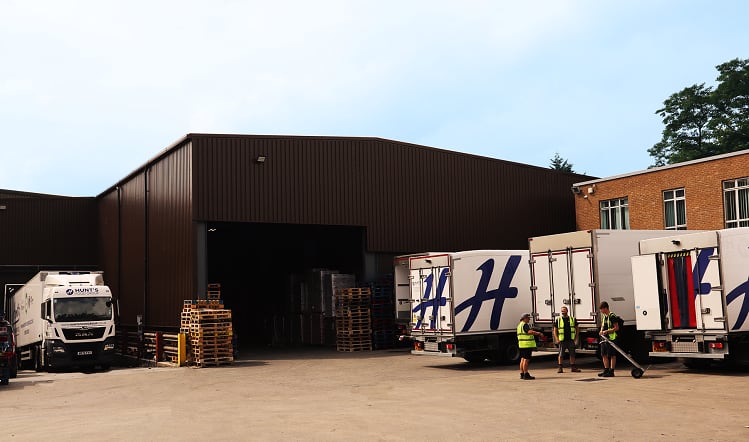The Office for National Statistics (ONS) confirmed that prices are rising at their fastest rate in 40 years, with inflation having increased by 10% in the last 12 months.
Virtually no corner of the UK economy is left untouched, and that’s particularly the case for the food and drink industry. Faced with rising food, labour, fuel and energy costs, manufacturers and suppliers also have the soaring price of warehouse storage to throw into the mix.
As the industry gears up once again for the most important trading period of the year, the price squeeze is certainly not going away, and it’s time for organisations to take stock and assess whether maximum value is being extracted from all existing assets. From what we can see by working at the heart of the supply chain at Company Shop Group, many are missing a trick.
Auditing slow moving stock
At the very top of all food businesses’ cost-saving lists should be an audit of the slow or non-working stock held up in warehouses. From speaking to manufacturers, suppliers, and retailers, we know first-hand that significant volumes of still valuable stock – and therefore cash – is tied up in storage.
What’s more, the cost of keeping products in storage is increasing rapidly each day, whilst the value of the products decreases further. In the countdown to Christmas in particular, it’s not just the price for space that is spiralling, it’s also the demand, and so the little remaining warehouse space for new stock becomes especially costly. Businesses would therefore be better working with the space that they already have.
We know businesses can be reluctant to deal with stored away stock, whether it be last year’s limited edition summer BBQ range, the Halloween party food that we already know won’t make it to this year’s shelves, or the never-ending Covid and Brexit product backlog.
That’s because they will inevitably open themselves up in some way to making a loss on the value of a product that they would have once got, had they sold it when intended.
Longevity of stock
By undertaking a warehouse audit, however, businesses will undoubtedly be surprised to see the potential that remains. It may be that the findings provide organisations with greater confidence in the longevity of their stock, with versatile products that will work again next year.
However, in many instances, there is a financial, environmental, and social benefit waiting for businesses to unlock if they consider even a proportion of their stock for redistribution.
For example, by using commercial redistribution routes like Company Shop Group offers, businesses can immediately obtain a financial return on existing stock that is currently being overlooked or would end up as waste when tackled later down the line.
We’ve already been working closely with manufacturers and suppliers to provide a financial and environmental return on stock that is either tied up in warehouses with little gain, or where businesses themselves are instead paying a service to have their slow or non-working stock removed or worse, disposed of.
In the current climate, and with a greater need than ever for food and drink businesses to make the most of the all-important months ahead, there is simply not the time nor the resources to waste. Businesses, with the support of their supply chain partners including surplus redistributors, must face up to the reality to ensure that maximum value is being extracted from all assets. It’s time to take stock, of all stock.




